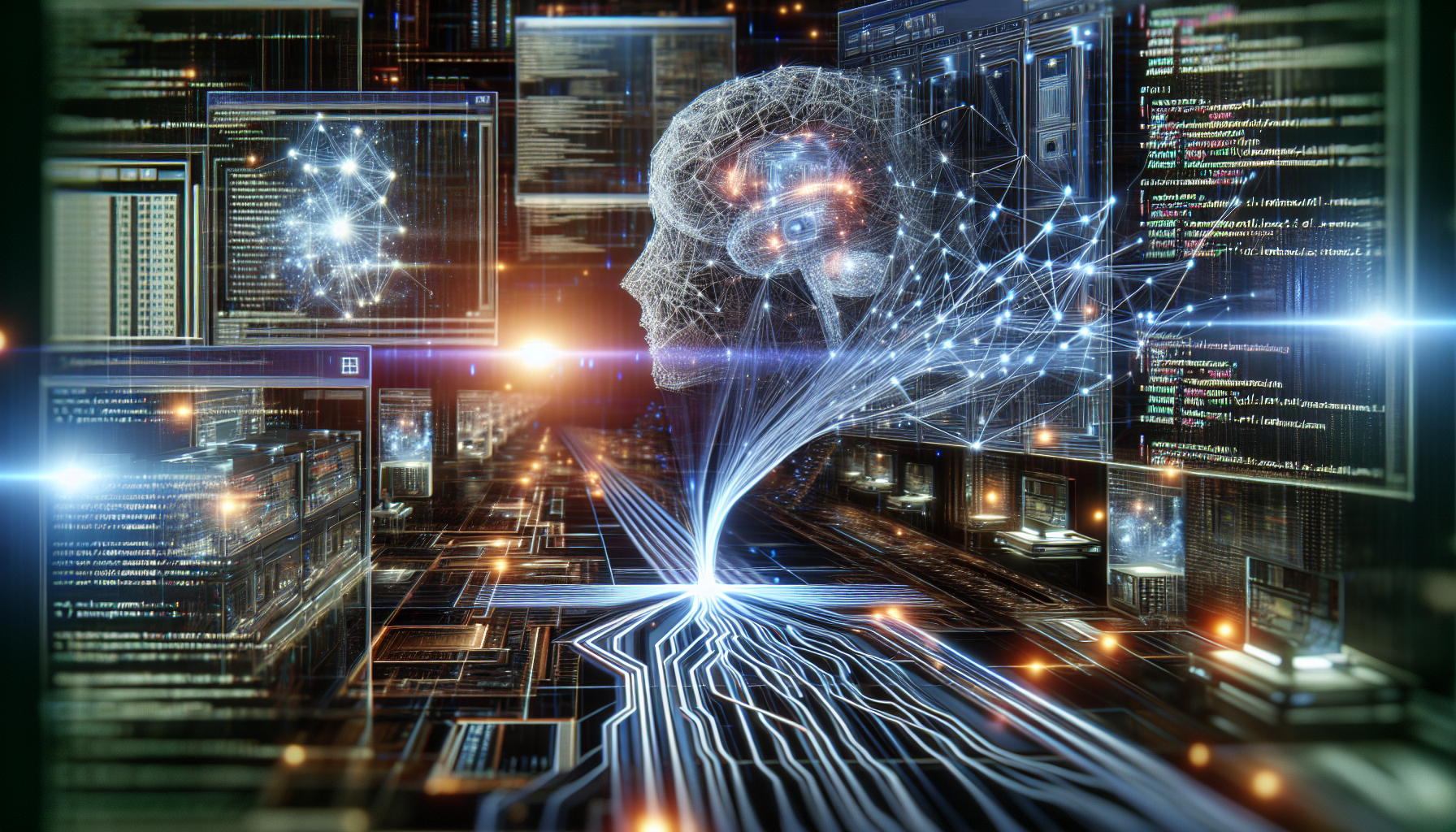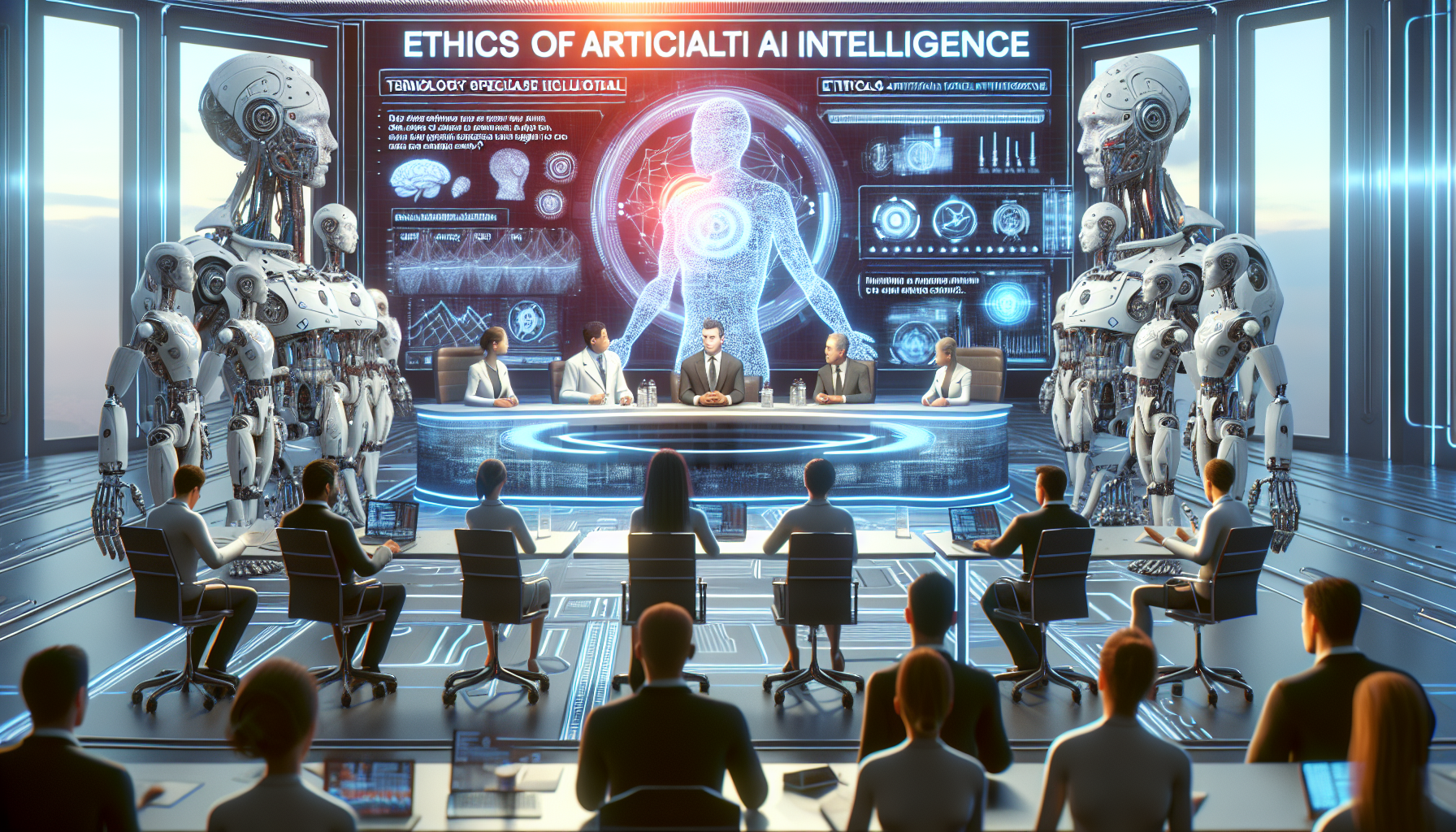Advertisements
Discover how artificial intelligence can revolutionize the way we deal with complex challenges! Training an AI to solve problems efficiently and accurately is an increasingly valued skill in the market. In this content, you will learn how to develop and improve the capabilities of an artificial intelligence, allowing it to solve complex issues autonomously and assertively.
Advertisements
Artificial intelligence is a technology that has been gaining prominence in various sectors, from medicine to the automotive industry. With the ability to process large volumes of data and identify patterns, a properly trained AI can offer innovative and effective solutions to problems that challenge human capabilities.
By mastering artificial intelligence training techniques, you will be prepared to face increasingly complex and demanding challenges. Through programming and data analysis, it is possible to teach an AI to recognize patterns, make decisions and even learn from its own mistakes, making it a powerful ally in problem-solving.
In this content, we will explore the power of artificial intelligence and how you can train it to tackle complex challenges efficiently and accurately. Learn how to develop machine learning models, use advanced algorithms, and evaluate AI performance, ensuring satisfactory and impactful results.
Advertisements
Be prepared to unlock the potential of artificial intelligence and stand out in an increasingly competitive and technological market. Learning how to train an AI to solve complex challenges can be the key to professional success and innovation in several areas. Come and discover how to master this technology and transform the way we deal with everyday problems.
How to train an AI to solve complex challenges
Artificial Intelligence (AI) has proven to be increasingly powerful in solving complex problems in a variety of areas, from medicine to logistics. However, for an AI to be efficient and accurate in solving these challenges, adequate training is necessary. Below, we present some tips on how to train an AI to solve complex challenges efficiently and accurately:
1. Define the problem clearly
Before you start training your AI, it’s crucial to clearly define the problem you want to solve. The more specific your problem definition is, the more effective your AI training will be.
2. Choose the right algorithms
There are many different AI algorithms available, and each one is better suited to solving certain types of problems. It is important to choose the algorithm that is best suited to the problem at hand.
3. Training data collection
The quality of your training data is essential to the success of your AI. Make sure you collect and prepare a large training dataset that is representative of the problem you want to solve.
- Have a large and diverse training data set;
- Clean and normalize data to ensure training quality;
- Use data augmentation techniques to enrich the training dataset.
4. Evaluate and adjust the model
During AI training, it is important to regularly evaluate the model’s performance and make adjustments as needed. This may involve optimizing hyperparameters, adjusting the model architecture, or adding more training data.
By following these tips and techniques, you can train an AI to solve complex challenges efficiently and accurately. AI has the potential to revolutionize many areas and bring innovative solutions to complex problems. With proper training, you can unlock the full power of Artificial Intelligence.

Furthermore, it is important to emphasize that the constant updating and improvement of artificial intelligence skills are essential to keep up with market demands and technological developments. The ability to adapt to changes and explore new AI applications is essential to stand out and remain relevant in an increasingly competitive scenario. Therefore, investing in the continuous development of artificial intelligence skills is essential to remain at the forefront of innovation and solving complex challenges.
By investing in the continuous development of artificial intelligence skills, professionals will be prepared to face market challenges and stand out in an increasingly competitive scenario. With the ability to adapt to changes and explore new applications of AI, it is possible to drive innovation and create increasingly advanced solutions. The constant evolution of technology offers opportunities to explore new possibilities and achieve surprising results in various areas, making artificial intelligence an indispensable tool for solving complex problems and revolutionizing processes in different sectors.
Conclusion
In conclusion, proper training of Artificial Intelligence (AI) is essential for it to be efficient and accurate in solving complex challenges. By following the tips presented, such as clearly defining the problem, choosing the appropriate algorithms, collecting quality training data, and evaluating and adjusting the model, it is possible to unlock the full potential of AI. AI has proven to be increasingly powerful in several areas, bringing innovative solutions and revolutionizing processes in sectors such as medicine and logistics. With the correct use of AI, it is possible to achieve surprising results and solve complex problems efficiently and accurately.
Therefore, investing in AI training is essential to make the most of the power of Artificial Intelligence and ensure that it can tackle increasingly complex challenges. The constant evolution of technology allows us to explore new possibilities and create increasingly advanced solutions, and AI is a powerful tool in this regard. By mastering AI training techniques, we can drive innovation and achieve surprising results in a variety of areas.
Artificial Intelligence has proven to be essential for environmental preservation by efficiently monitoring and analyzing data. With its ability to process large volumes of information, AI allows the monitoring of sensitive areas, such as forests and oceans, in addition to providing real-time data on environmental impacts. By identifying consumption and waste patterns, AI helps reduce negative impacts, promoting more efficient and sustainable use of natural resources, essential for a more balanced and sustainable future.




